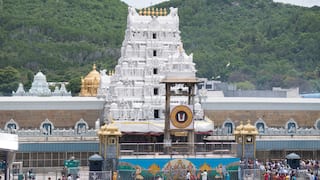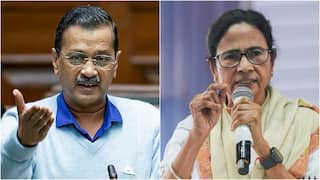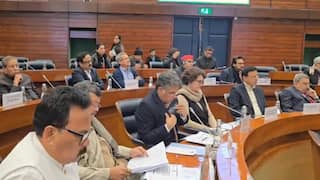Ramaphosa announces massive plans to address South African power crisis
Johannesburg, Jul 26 (PTI): South African President Cyril Ramaphosa has announced largescale reforms, including changes to existing legislation, to address the ongoing energy crisis in the countr.

Johannesburg, Jul 26 (PTI): South African President Cyril Ramaphosa has announced largescale reforms, including changes to existing legislation, to address the ongoing energy crisis in the country.
"During the past three weeks, severe load shedding has disrupted all of our lives and caused immense damage to our economy. The daily power cuts (of up to six hours at times) we have been experiencing have inconvenienced millions of households and have presented huge challenges for businesses," Ramaphosa said in an address to the nation on Monday evening.
"After more than a decade without a reliable electricity supply, South Africans are justifiably frustrated and angry. They are fed up,” he said.
The president said state-owned power utility Eskom has to implement load shedding to prevent the electricity grid from collapsing and "to ensure that we never experience a complete blackout".
"The shortage of electricity is a huge constraint on economic growth and job creation. It deters investment and reduces our economy's competitiveness,” he added.
Ramaphosa said he had consulted widely in the past 10 days in reaching the decisions he was announcing.
"The crisis that we are facing requires that we should take bold, courageous and decisive action to close the electricity gap,” he said.
The broad plans Ramaphosa announced included improving the performance of Eskom's existing fleet of power stations, accelerating the procurement of new generation capacity, massively increasing private investment in generation capacity, encouraging businesses and households to invest in rooftop solar power generation, and fundamentally transforming the electricity sector and positioning it for future sustainability.
The president explained some of the reasons behind the frequent outages as being ageing infrastructure, delays in new power stations, and extensive theft, fraud and sabotage at Eskom.
"What is happening at Tutuka and other power stations is deliberate sabotage by well-organised criminal syndicates that are destroying the utility and damaging our economy” he said.
“We also experienced damage to the transmission line from Cahora Bassa in (neighbouring) Mozambique and there were also instances reported of deliberate damage to equipment,” he said.
Among the plans to address the situation are increasing law enforcement agencies' efforts to tackling sabotage, theft and fraud at Eskom's power stations and other key installations; bigger budgets for Eskom for critical maintenance; cutting red tape that has made it difficult for Eskom to buy maintenance spares and equipment within the required period to effect repairs; and recruiting skilled personnel, including former senior Eskom plant managers and engineers from the private sector.
"These skilled personnel will support various personnel and help to ensure that world-class operating and maintenance procedures are reinstated,” Ramaphosa said.
Eskom will now purchase additional energy from existing private generators such as mines, paper mills, shopping centres and other private entities that have surplus power.
Eskom will now also import power from neighbouring countries such as Botswana and Zambia, which have more electricity capacity than they require.
"Following the enthusiasm shown by the private sector, we will remove the licensing threshold for embedded generation completely. This will enable private investment in electricity generation to rise to higher levels. While they will not require licences, all new generation projects will still have to register with the regulator and comply with the technical requirements for grid connection and our environmental legislation,” Ramaphosa said.
To address the challenges of bureaucratic time-consuming processes, new legislation will be tabled in Parliament to remove administrative obstacles.
Ramaphosa said these measures would obviate the need to declare a state of disaster or even emergency, as some have suggested.
He also urged business and households to invest in more rooftop solar energy generation and sell back excess production to the Eskom grid.
The president emphasised that Eskom would remain a state-owned entity as a national asset.
He said a National Energy Crisis Committee reporting directly to him has been established which would draw on the best available expertise from business, labour, professional engineering entities and community-based organisations to oversee these plans. PTI FH SMN SMN
(This story is published as part of the auto-generated syndicate wire feed. No editing has been done in the headline or the body by ABP Live.)
Trending News
Top Headlines








































